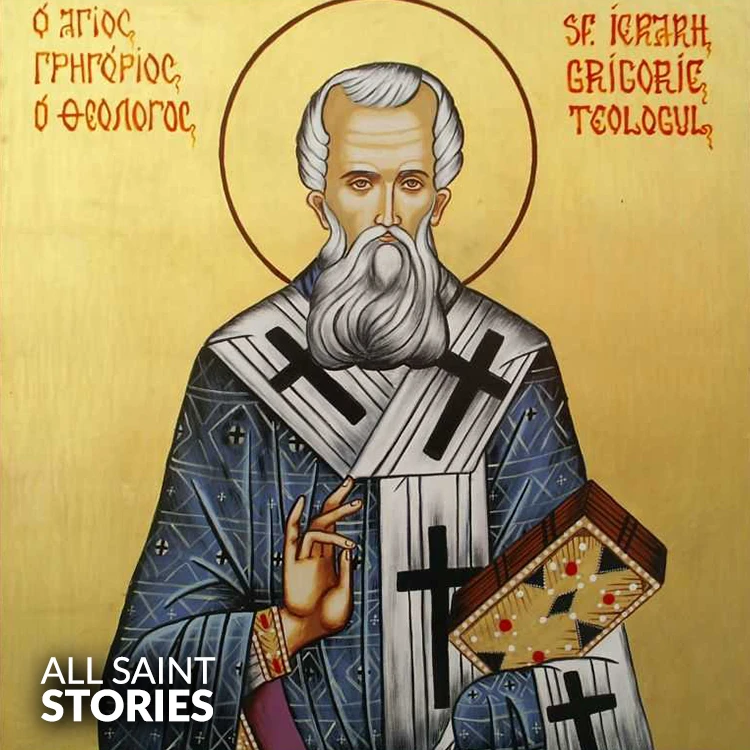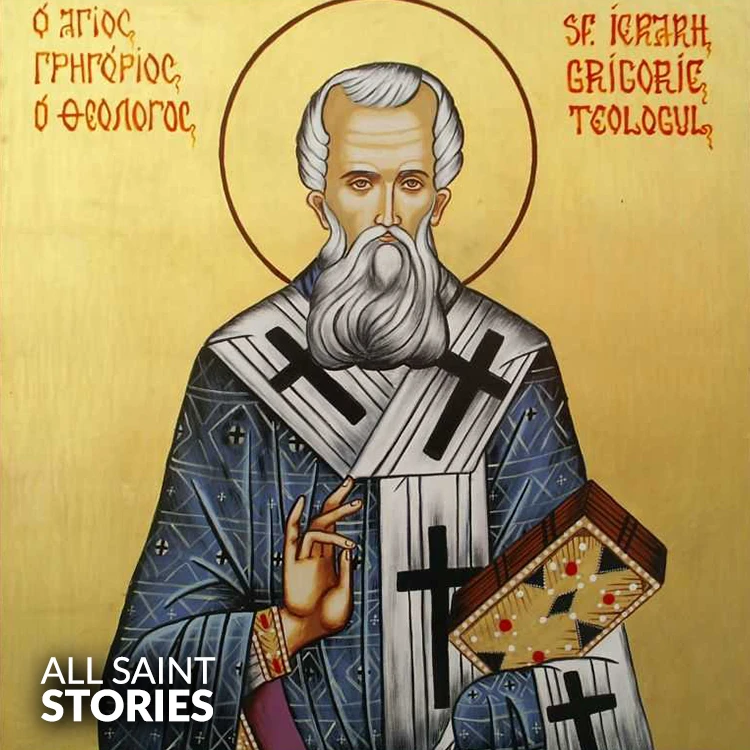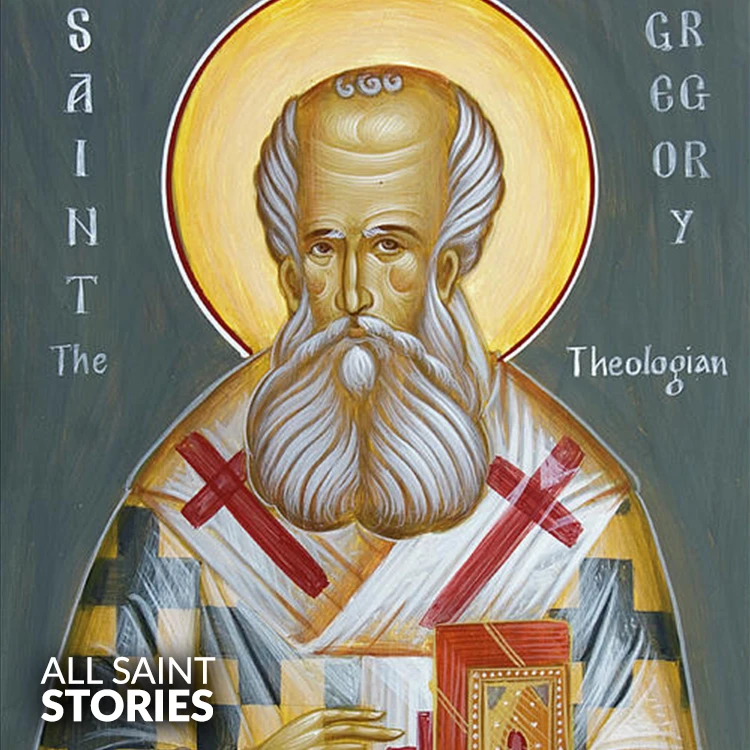"O God, who hast crowned Thy servant Gregory with the grace of wisdom and devotion, grant us the strength to live our lives according to Thy will, imitating the example of virtue he set for all. Through Christ our Lord. Amen."
ST. GREGORY OF NAZIANZUS
ST. GREGORY OF NAZIANZUS

St. Gregory Nazianzen was a renowned Church Father, theologian, and Doctor of the Church, recognized for his significant contributions to Christian doctrine, especially in defending the Nicene Creed and articulating the doctrine of the Holy Trinity. Born into a devout Christian family, he was a close friend of St. Basil the Great and played a pivotal role in the theological development of early Christianity. His writings continue to influence Christian theology, and his feast day is celebrated on January 2nd.
St. Gregory Nazianzen was born in 329 in the region of Cappadocia, present-day Turkey. His father, St. Gregory the Elder, was the bishop of Nazianzus, and his mother, St. Nonna, was a woman of deep faith. Gregory’s family was profoundly influential in the early Church, with both of his parents and his siblings also being saints. Gregory received an excellent education, studying in places like Caesarea, Alexandria, and Athens, where he formed a lasting friendship with St. Basil the Great. Together, they pursued lives of asceticism and religious devotion, hoping to dedicate themselves to God.
At the age of 31, Gregory was ordained as a priest, reluctantly accepting the role, as he had originally intended to lead a solitary life. Nevertheless, he became an influential writer and preacher, and his work on the nature of the Trinity and the person of Christ remains a cornerstone of Christian theology. He was made bishop of Nazianzus, but his dissatisfaction with the political entanglements of the Church led him to resign and return home to assist his elderly father.
In 379, Gregory answered a call to Constantinople, where Arianism had taken root, and the orthodox Christian belief in the Nicene Creed was under threat. He was appointed patriarch of Constantinople by Emperor Theodosius in 380, and with his wisdom, eloquence, and dedication, he restored the Nicene Creed as the accepted doctrine of the Church. During this time, St. Jerome was one of his pupils.
Though Gregory's health was frail, and his tenure in Constantinople was brief, his theological influence was immense. He is celebrated for his writings, particularly his orations on the Holy Trinity, which earned him the title "The Theologian" in the Greek Church. He returned to Nazianzus, where he lived his final years in peace and humility, passing away in 389.
St. Gregory Nazianzen’s work continues to shape Christian thought today, and he is remembered for his unwavering defense of orthodoxy and his contribution to the development of Christian theology. His life exemplified the pursuit of wisdom, virtue, and devotion to God. His feast day is celebrated on January 2nd each year.
Video Not Found
The information on this website is compiled from various trusted sources. While we aim for accuracy, some details may be incomplete or contain discrepancies.
If you notice any errors or have additional information about this saint, please use the form on the left to share your suggestions. Your input helps us improve and maintain reliable content for everyone.
All submissions are reviewed carefully, and your personal details will remain confidential. Thank you for contributing to the accuracy and value of this resource.
Credits & Acknowledgments
- Anudina Visudhar (Malayalam) – Life of Saints for Everyday
by Msgr. Thomas Moothedan, M.A., D.D. - Saint Companions for Each Day
by A. J. M. Mausolfe & J. K. Mausolfe - US Catholic (Faith in Real Life) – Informational articles
- Wikipedia – General reference content and images
- Anastpaul.com – Saint images and reflections
- Pravachaka Sabdam (Malayalam) – Saint-related content and insights
We sincerely thank these authors and platforms for their valuable contributions. If we have unintentionally missed any attribution, please notify us, and we will make the correction promptly.
If you have any suggestion about ST. GREGORY OF NAZIANZUS
Your suggestion will help improve the information about this saint. Your details will not be disclosed anywhere.
© 2026 Copyright @ www.allsaintstories.com





 English
English
 Italian
Italian
 French
French
 Spanish
Spanish
 Malayalam
Malayalam
 Russian
Russian
 Korean
Korean
 Sinhala
Sinhala
 Japanese
Japanese
 Arabic
Arabic
 Portuguese
Portuguese
 Bantu
Bantu
 Greek
Greek
 German
German
 Dutch
Dutch
 Filipino
Filipino